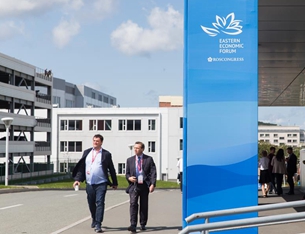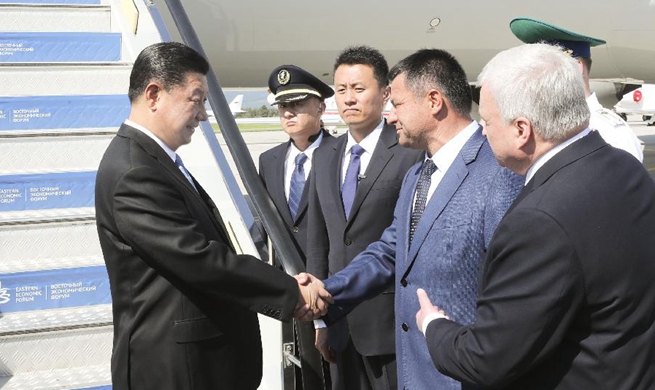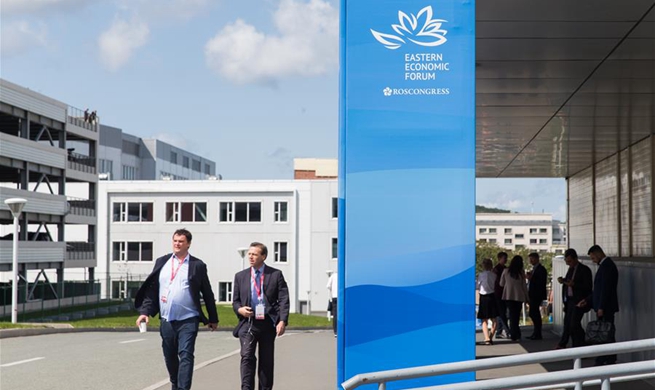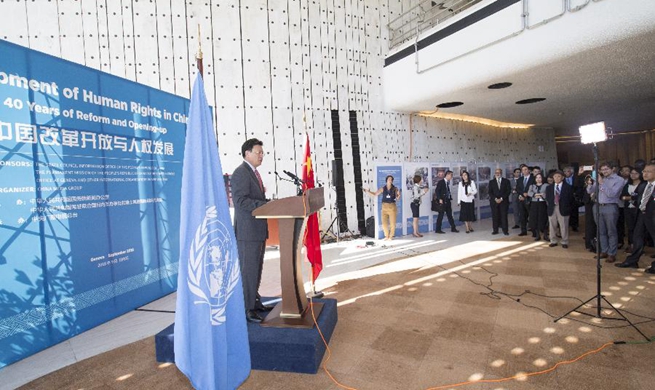BERLIN, Sept. 11 (Xinhua) -- Hans-Georg Maasen, the president of the German Federal Office for the Protection of the Constitution (BfV), has sought to clarify controversial comments made earlier about recent far-right demonstrations in Chemnitz, German media reported on Tuesday.
The newspapers "Sueddeutsche Zeitung" (SZ) and magazine "SPIEGEL" cited a report presented by Maasen to the Interior Minister Horst Seehofer (CSU) in which he denied questioning the authenticity of video footage depicting protestors chasing and harassing foreign-looking civilians on the streets of Chemnitz. Instead, the BfV chief insisted that he had merely doubted whether the scenes could be accurately described as a "man hunt" and criticized the publication of the video material shortly after the far-right "Pro Chemnitz" march in question took place.
Earlier, Maasen told the newspaper "BILD" that his intelligence agency had seen no concrete evidence to suggest that widely-condemned chases of civilians with foreign appearances had occurred in the East German city. He hereby contradicted Chancellor Angela Merkel (CDU), as well as local security authorities on the issue.
The apparent attempt by Maasen to downplay the xenophobic incident came at a time when several senior politicians in Germany were urging the BfV to place greater scrutiny on far-right groups like the Alternative for Germany (AfD) party. As a consequence, German Social Democrat (SPD) leader Andrea Nahles argued that Maasen was no longer suited to his task of protecting the constitutional order from extremist forces.
Responding to growing pressure on Maasen, Seehofer announced that he expected the BfV president to deliver a report to him which would "substantiate his thesis" concerning events on the streets of Chemnitz. According to the German press agency (dpa), the interior minister has yet to read the document quoted by SZ and "SPIEGEL".
In the meantime, Maasen remains under heavy fire in Germany for his statements and alleged failure to distance himself sufficiently from far-right actors. "Especially in times of so-called fake news and conspiracy theories it is the job of the (BfV) chief to ensure clarity and certainty, rather than participating or even sparking speculation," Boris Pistorius (SPD), governor of Lower Saxony, told "Redaktionsnetzwerk Deutschland" on Tuesday.
Armin Laschet, deputy Christian Democratic Union (CDU) leader and governor of North Rhine-Westphalia, similarly complained that Maasen needed to reconsider his professional priorities. "Protectors of the constitution should monitor enemies of the constitution instead of giving interviews to the BILD newspaper," Laschet said.
Maasen has also been accused by a former AfD member of having offered the party clandestine advice on how to prevent becoming the target of a BfV investigation. At the time, Maasen admitted to have met the then AfD leader Frauke Petry but denied offering her any guidance.
So far, Seehofer has said that Maasen retains his trust as BfV president while noting that he would assess the report which seeks to clarify comments about the Chemnitz marches carefully. Maasen is also scheduled to address the parliamentary committee for the control of intelligence services (PKGr), as well as the body's interior affairs committee, on Wednesday.













